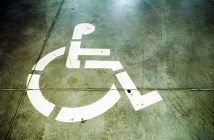The Importance Of A Holistic Recovery
Addiction treatment centers increasingly realize the importance of a holistic approach to addiction treatment and recovery. The term “holistic” refers to a variety of alternative treatments that, when combined with traditional intervention techniques, help a patient take responsibility for their own recovery and achieve optimal health. Holistic recovery approaches have a variety of benefits, from preventing relapse to increasing comfort during the detox and initial recovery process.
An Integrative Medicine Approach To Healing
Holistic therapies hold that aspects of the healing journey are parts of a larger, interconnected whole. Holistic addiction treatment focuses on the entire person and the underlying causes that might affect a person’s struggle with substance abuse or alcoholism. Integrative medicine approaches focus on the physical, emotional, and mental health of the person in recovery, with an emphasis on spiritual wellness. There are several different kinds of holistic and alternative therapies that can help someone on their journey of healing and recovery:
Mindfulness Meditation
Mindfulness plays an essential role in addiction recovery. It comes up in many addiction support groups, and you may even hear about it in your other therapies and interventions. The process of mindfulness can take some time to achieve, but it can be especially helpful in the beginning stages of recovery as you adjust to a life without substances. Meditation is one form of mindfulness that focuses on the connection between your mind and body. You exercise meditation in a quiet place with no distractions, and it can be as simple as relaxing and concentrating on your breathing. By practicing meditation, you can gain control over your thoughts, emotions, and inhibitions, which can have long-lasting benefits to your recovery.
Yoga
Yoga is another complementary practice that seeks to provide a connection between mind and body. The practice of yoga can lead to stress relief, relief from pain, better self-awareness, and even more self-efficacy. Through guided stretches and breathing exercises, practitioners of yoga can heal both physically and mentally, building strength and patience. This balance is critical during the addiction recovery process, as stress can put you in danger of relapsing.
Drumming Circles
Drumming circles, or drumming therapy, involves an arrangement in which participants hit drumsticks to produce a feeling of catharsis and subsequent relaxation. The act of drumming on a beat can produce synchronization of the brain waves, which contributes to this feeling of relaxation. The act of drumming can also provide participants with an outlet for dealing with any emotional trauma that might spur their addiction.
Acupuncture
Acupuncture is a holistic therapy that dates back millennia. By inserting thin, hollow needles into specific points, patients can experience pain relief, relaxation, and reduced stress. Sessions in the earliest parts of recovery can assist with uncomfortable withdrawal symptoms and aid the recovery process.
Nutrition
A well-balanced diet plays an essential role in recovery and can help address some of the side effects of an addiction. People who struggle with alcoholism, for example, often crave sugary foods in recovery because of the way their bodies metabolized the alcohol. Giving into sugar cravings, however, can be a gateway to more addictive behavior. Learning how to satisfy cravings healthfully and addressing any malnutrition that results from the addiction, itself, is a central aspect of long-lasting recovery.
Exercise
Exercise is one of the simplest and most effective ways to decrease stress, improve sleep, and aid in the recovery process. Stress can be a trigger for relapse, and controlling your stress with a healthy habit like moderate exercise can be a simple way to achieve a long-lasting recovery. Picking up an exercise hobby, such as running races or participating in triathlons, provides an extra layer of accountability and also helps people in the recovery process find a new way to fill their time.
Equine Therapy
Finally, equine therapy, or horse riding, provides a relaxing way to commune with nature and aids in the recovery process. Horseback riding supports oneness with the natural world and also promotes stress and pain relief. Interactions with horses can help people recovering from addiction achieve assertiveness, empathy, and emotional awareness. It can also increase feelings of independence, which is essential in cases of co-dependency.
Conclusion
Holistic addiction treatments are essential to the recovery process, whether it is yoga and acupuncture or proper nutrition and exercise. When used in combination with cognitive behavioral therapy, medically supervised detox, and other traditional intervention techniques, people recovering from addiction can experience mental and spiritual wellness that improve their chances of a long-lasting recovery.
Harmony Place is an addiction recovery center located in Woodland Hills, CA that offers alternative and complementary therapies as part of a tailored recovery plan. We believe that mindfulness meditation, nutrition, and exercise are essential aspects to preventing relapse and promoting good mental health.




